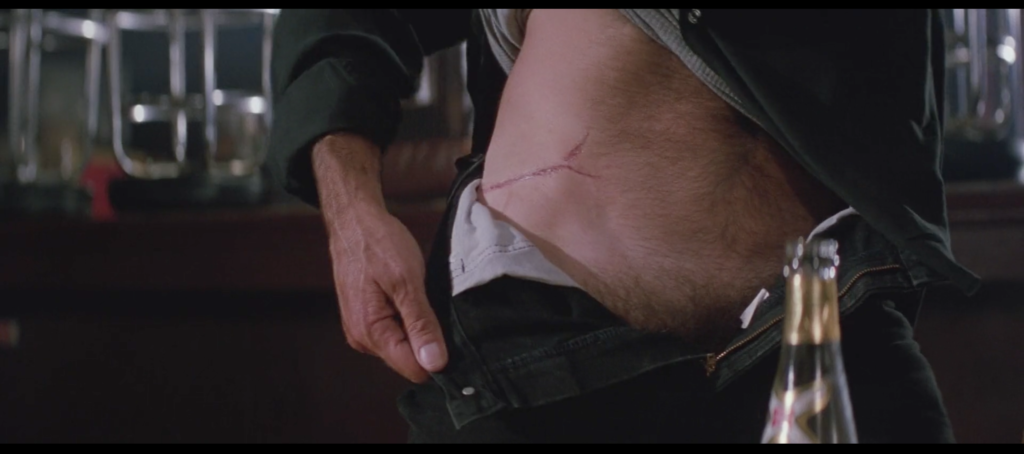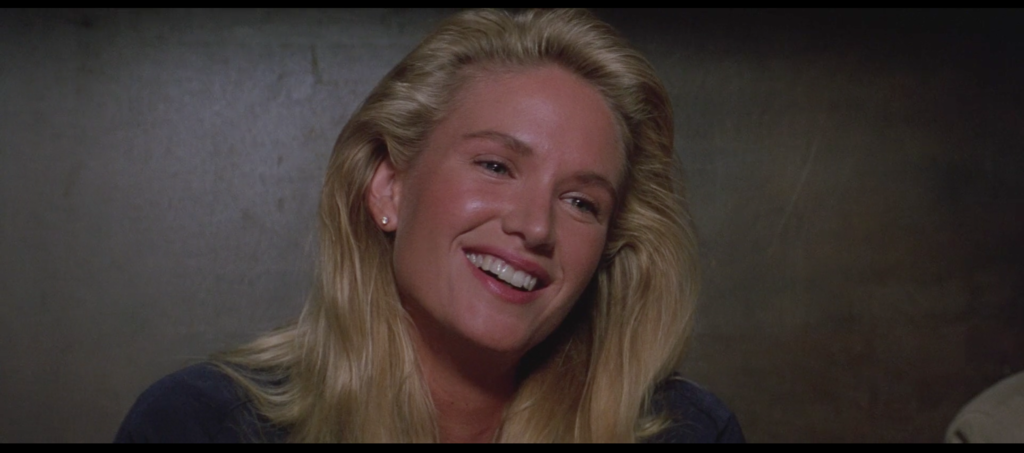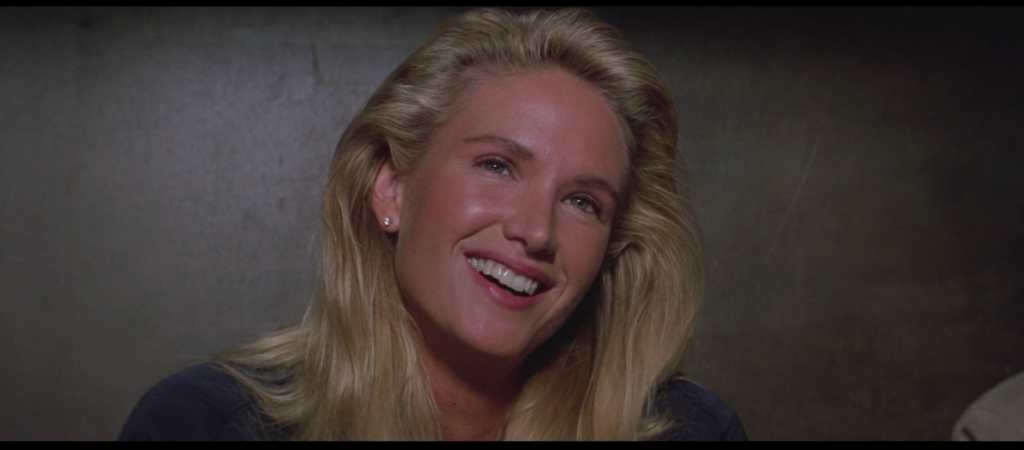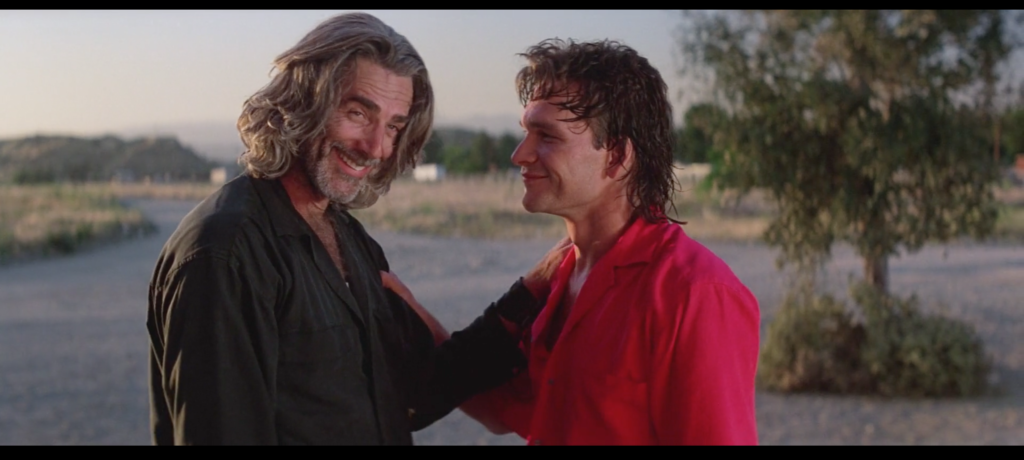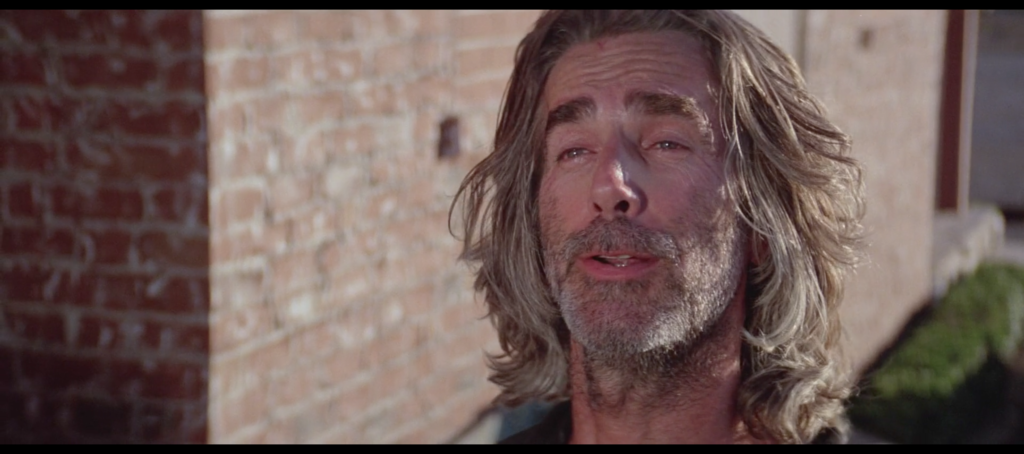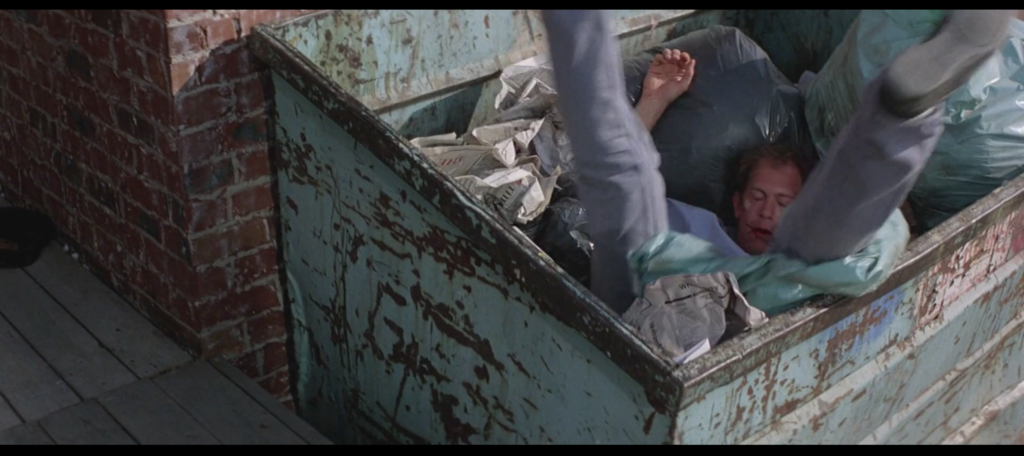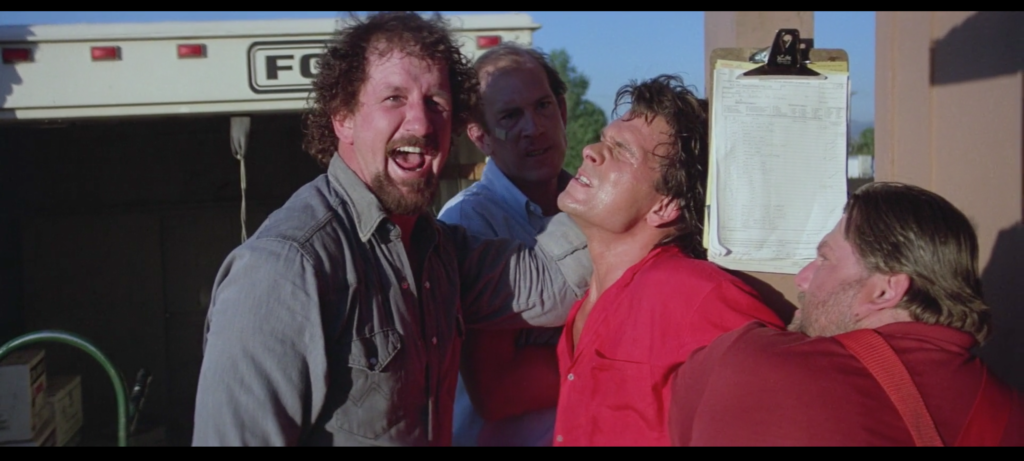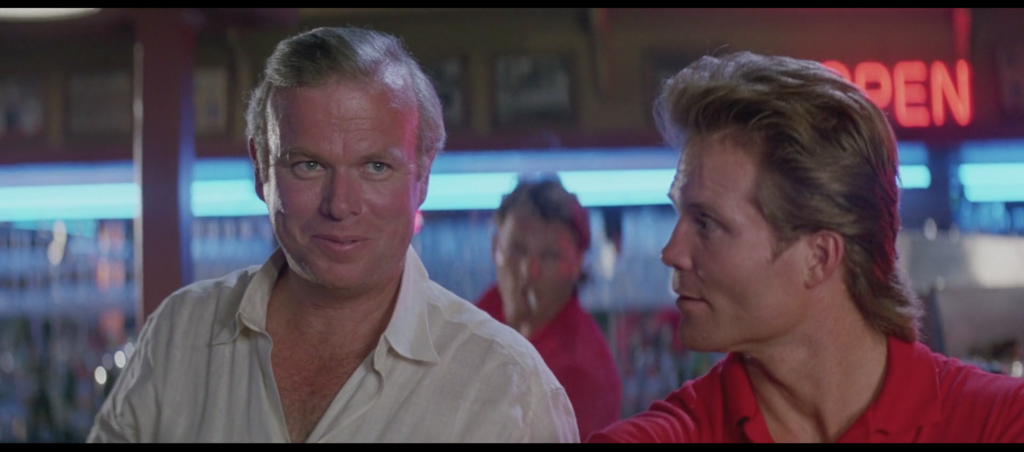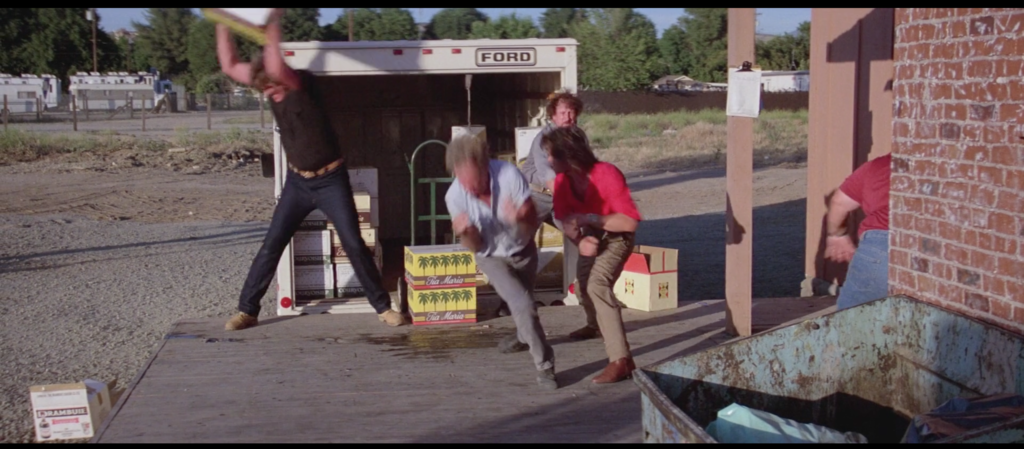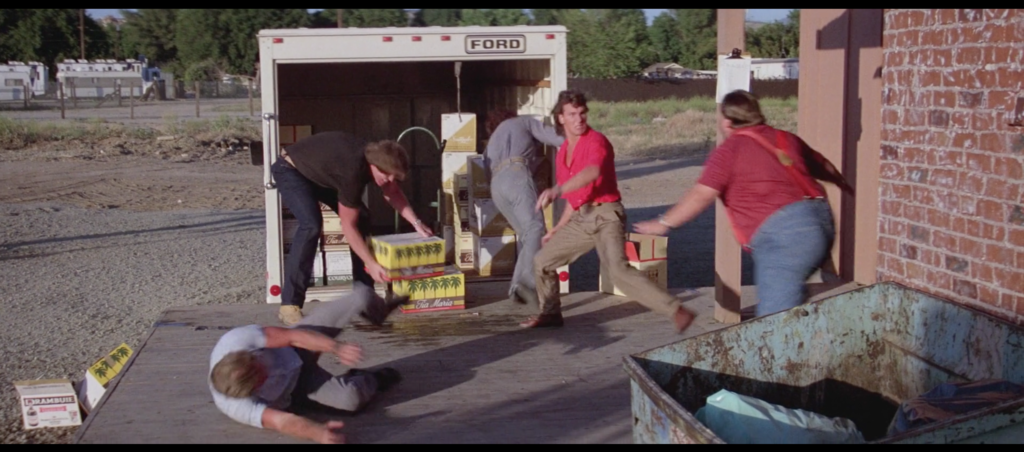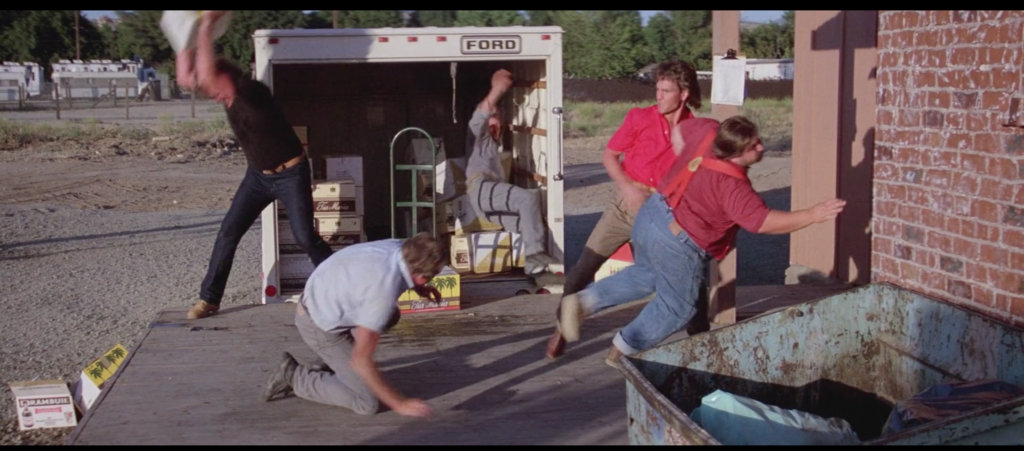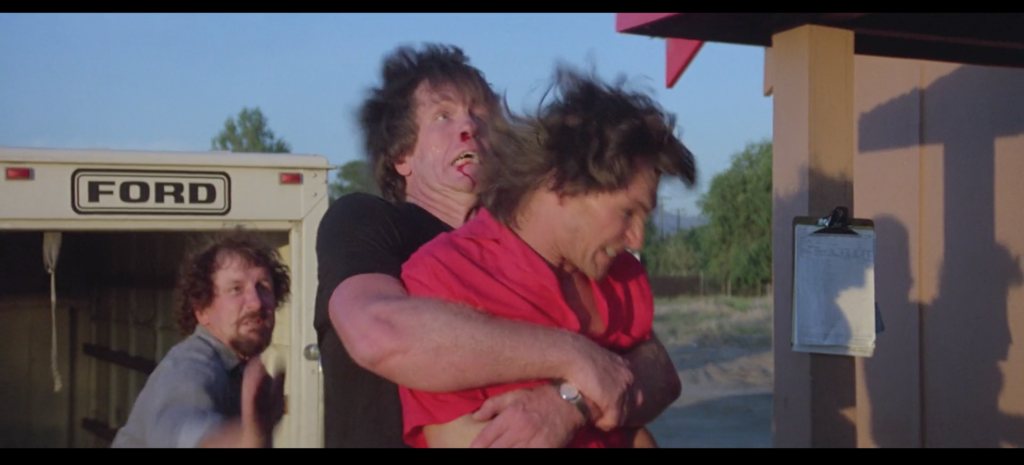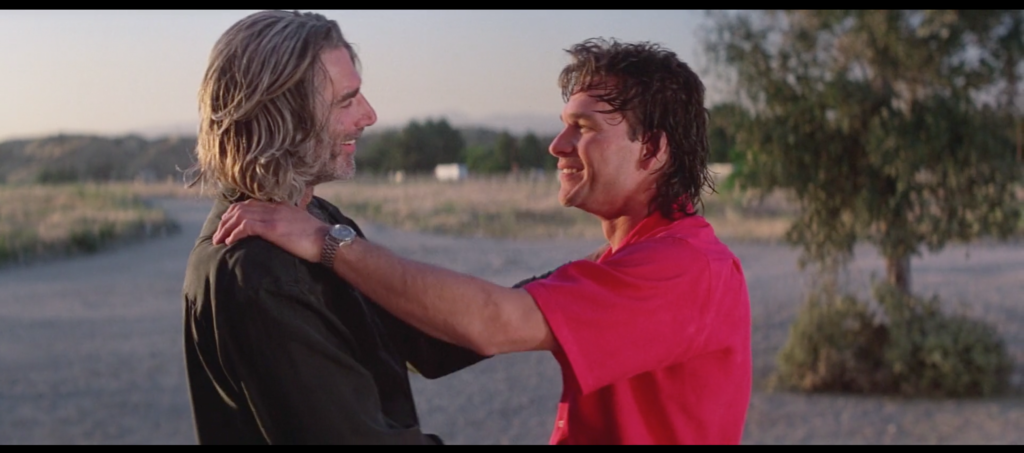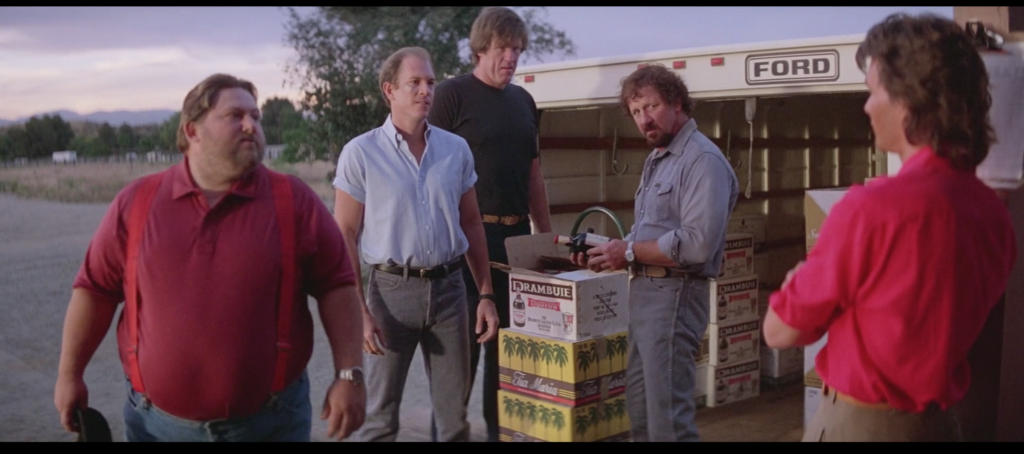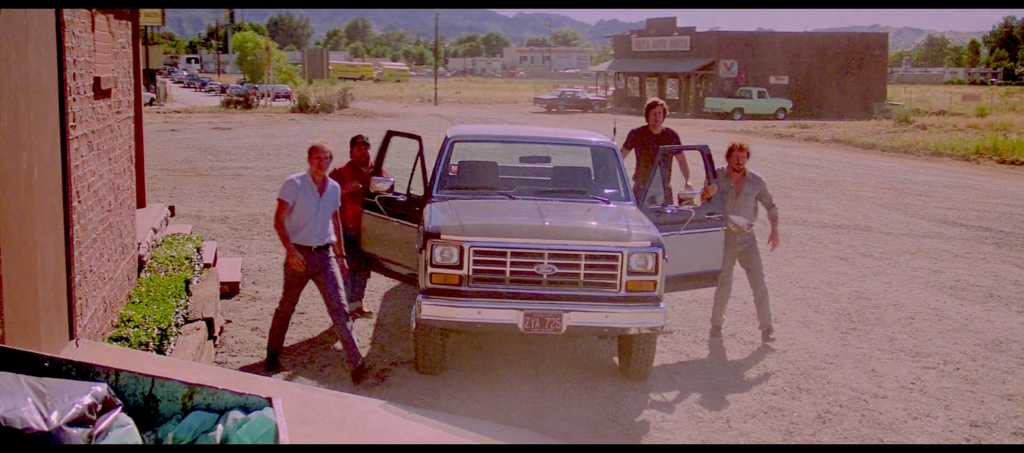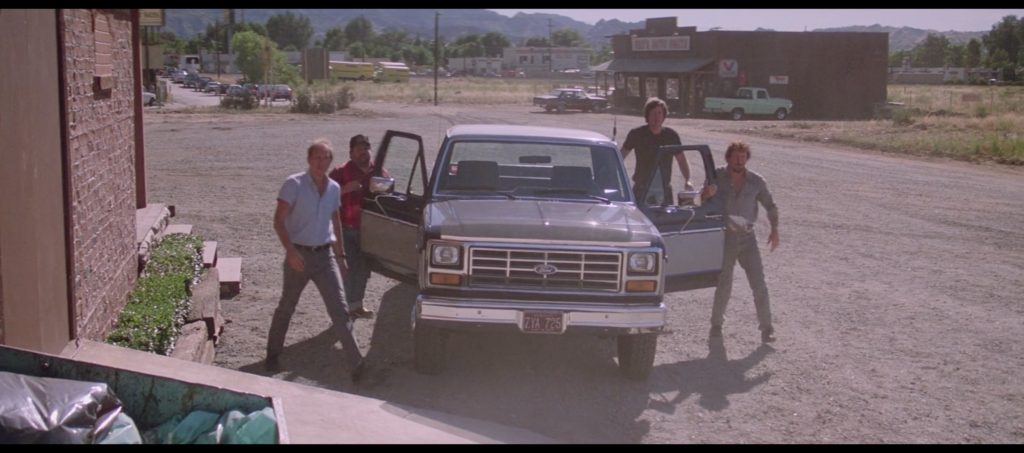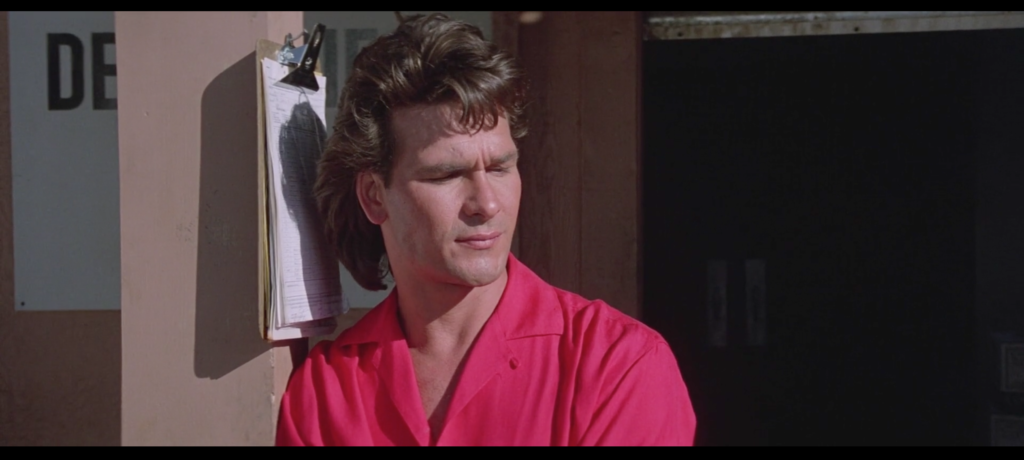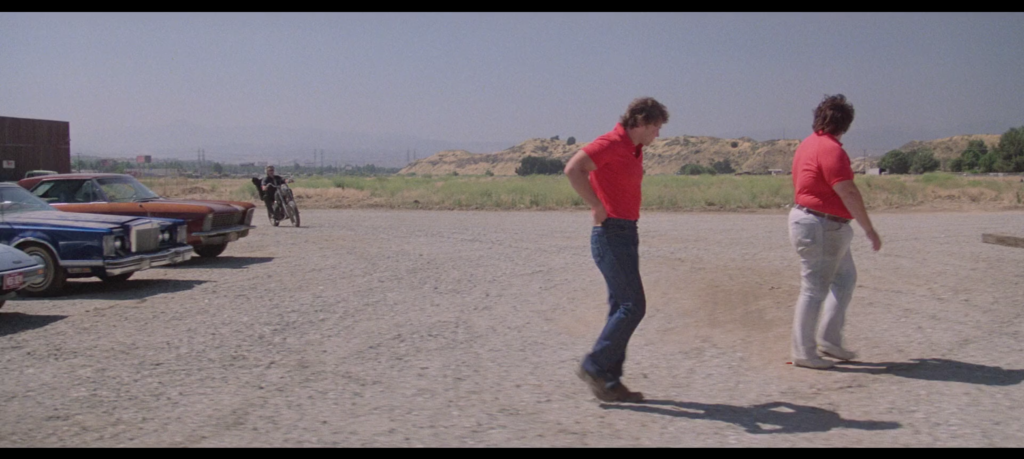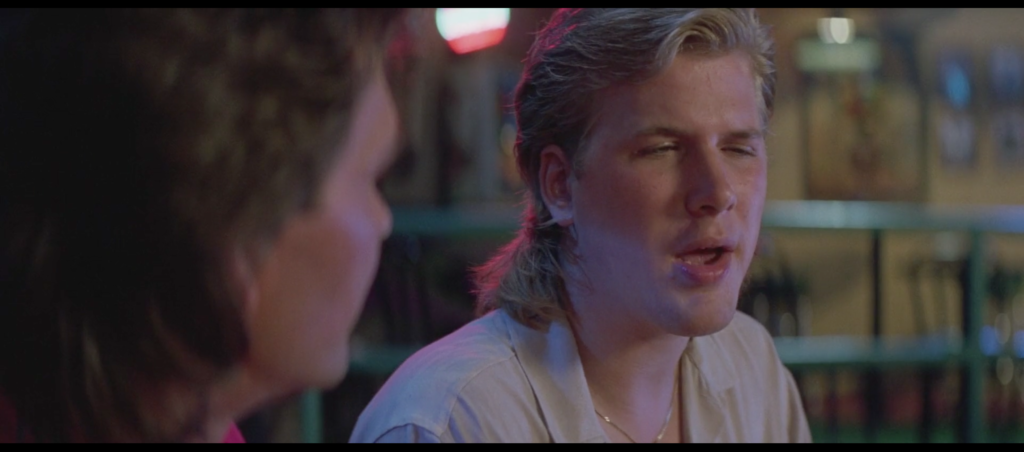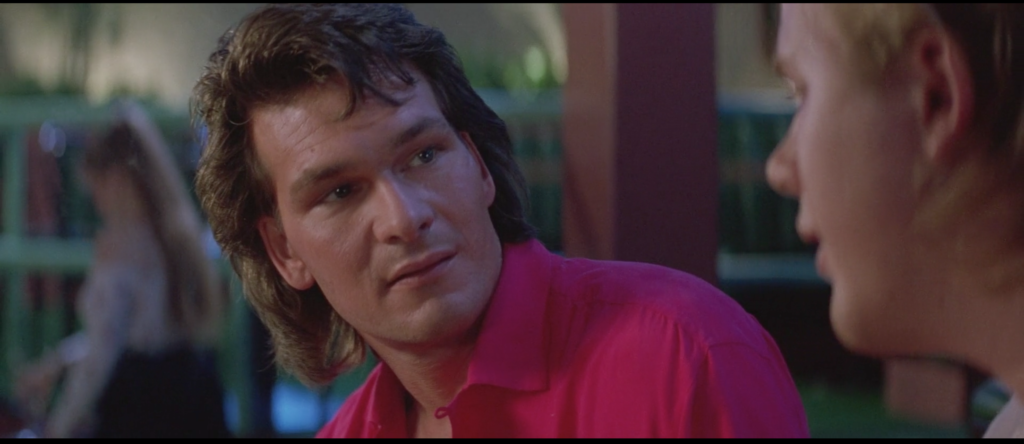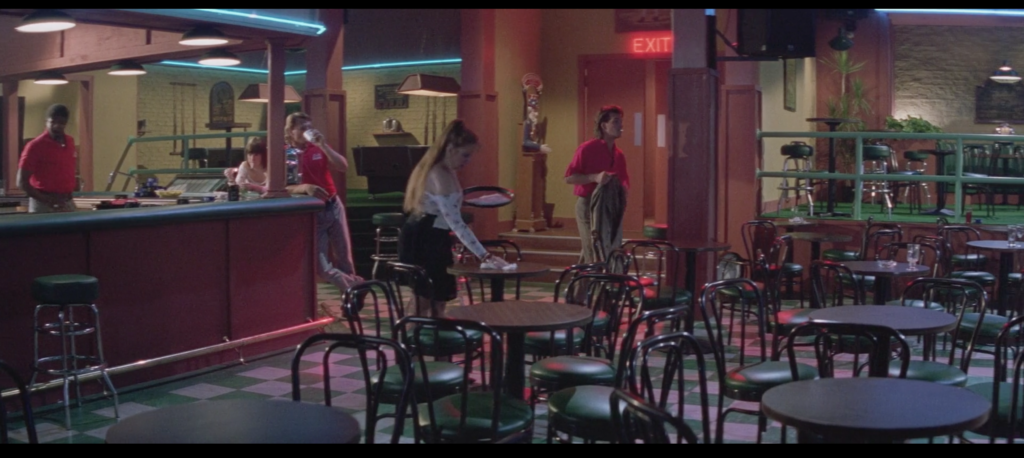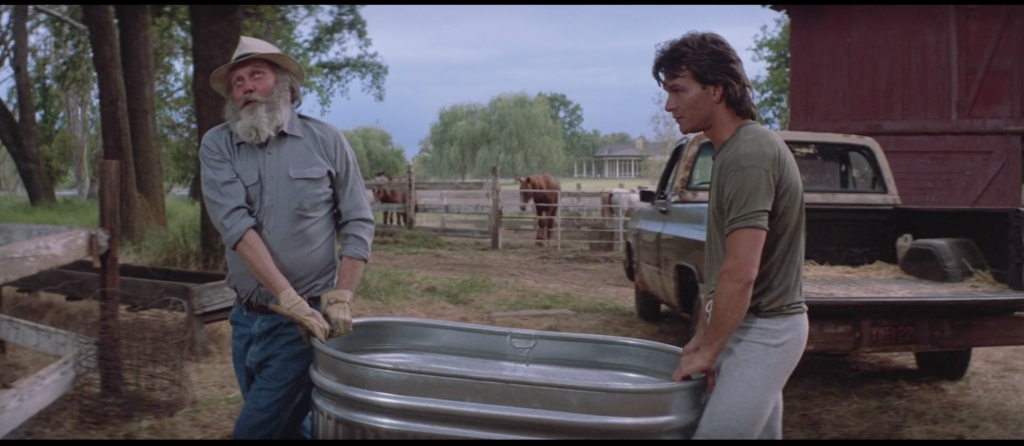It takes a bold film to remake the Jaws scar comparison/USS Indianapolis story scene as an excuse for Sam Elliott to expose his pubic hair to the viewing public. Road House is a bold film. We’re less than a minute into Wade Garrett reminiscing about a time in Albuquerque, New Mexico, 1975, when he and Dalton got jumped by a guy with a bottle of Jack Daniels aimed at their heads. All it takes is for Dalton to mention the word “scar,” and before you can say Jack Robinson Wade is unbuttoning his jeans. “Oh, I’ll show you a scar,” he says, looking at Dr. Elizabeth Clay, whom he met a couple of hours ago. “I’ll show you one I’m real sentimental about, Doc.” Pop, zip, pull, push push in the bush. It happens as fast as a throat rip. Now even that bottle of Miller seems lewd.
What does the good Doctor think of all this?
You tell me.
I mean Jesus, her attraction to this man could not be more obvious if she stood up and unbuttoned her jeans. If I were Dalton I would not leave these two alone for a minute. If I were Dalton I’d reconsider introducing the two of them in the first place. Even when she asks about the origin of the scar—Her: “A woman?” Him: “Boy, was she.”—her mind is clearly and necessarily on the thought of a woman touching him mere inches away from his penis. Something tells me she’s mentally covered that gap once or twice already.
Kelly Lynch has spoken sweetly about her romantic chemistry with both Patrick Swayze and Sam Elliott in this film, and the highest compliment I can pay her is that I didn’t need to hear her explain it. It’s right there on the screen. She looks at Sam Elliott’s pubic hair the same way most women I’ve watched this movie with do. A man? Boy, was he.

